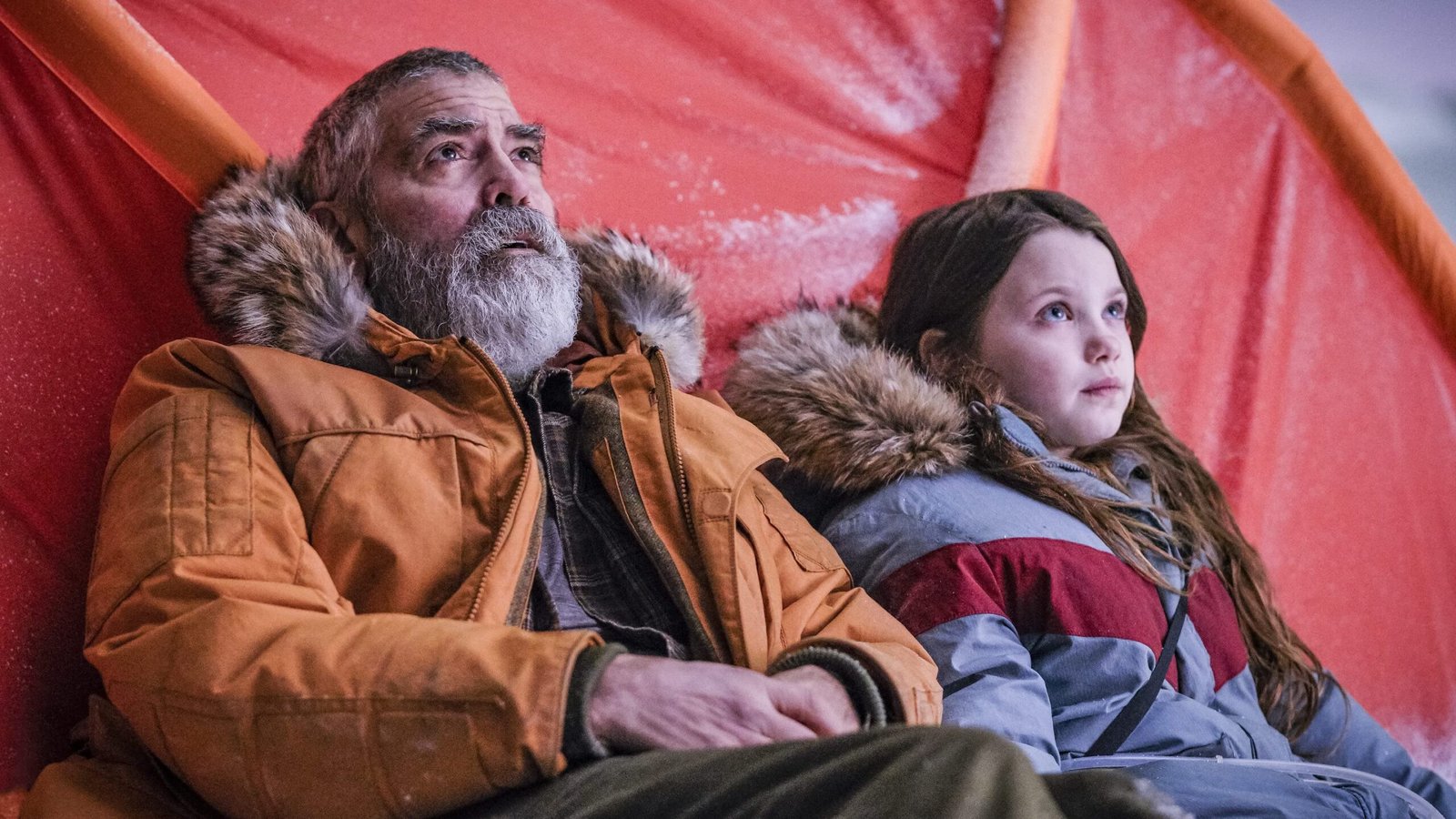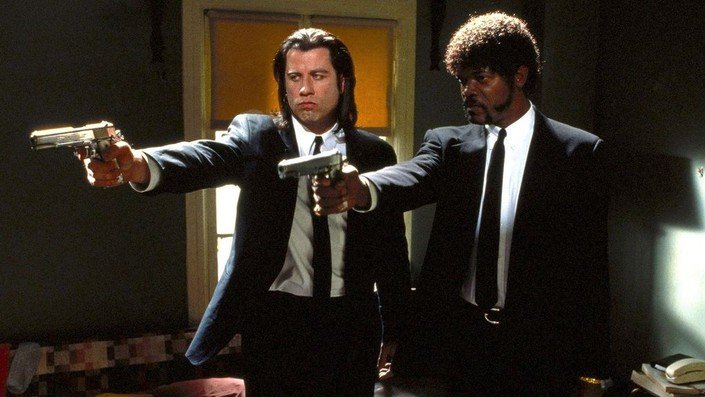
As the holiday season approaches, many of us look forward to the warm, uplifting stories that often define the Christmas spirit. However, George Clooney’s latest film, The Midnight Sky, offers a decidedly more somber take on the yuletide tradition. This sci-fi drama, adapted from the novel by Lily Brooks-Dalton, delves into themes of isolation, regret, and humanity’s uncertain future, painting a melancholic portrait of the holiday season.
Clooney, who both directs and stars in the film, plays Augustine, a lonely scientist stationed at a remote Arctic research outpost. As the last remaining inhabitant of the facility, Augustine finds himself grappling with his own mortality and the weight of his past decisions. Parallel to his story, the film follows a team of astronauts, led by Sully (Felicity Jones), who are returning to Earth after a mission to explore a potentially habitable moon of Jupiter, known as K23.
The juxtaposition of these two narratives, one grounded in the harsh realities of a dying planet and the other exploring the possibilities of a new frontier, serves as the foundation for The Midnight Sky‘s exploration of existential themes. As Augustine struggles to come to terms with his own regrets and the impending doom of humanity, the astronauts must confront the uncertainty of their homecoming and the fate that awaits them.
Isolation and the Search for Connection
At the heart of The Midnight Sky is the theme of isolation and the human need for connection. Augustine, having chosen to remain behind at the Arctic research station, finds himself utterly alone, surrounded by the vast, unforgiving landscape of the North. His only companion is a young girl named Iris (Caoilinn Springall), who has also been left behind at the facility.
The relationship that develops between Augustine and Iris is a poignant one, as the two characters, both grappling with their own demons, find solace in each other’s company. Iris, who communicates primarily through drawings, represents a glimmer of hope and innocence in Augustine’s otherwise bleak existence. Their journey together, as they navigate the treacherous terrain in search of a way to contact the astronauts, becomes a metaphor for the universal human desire to find meaning and connection in the face of overwhelming adversity.
Paralleling Augustine’s story, the astronauts aboard the spacecraft also find themselves isolated, cut off from the rest of humanity as they make their way back to Earth. The film’s exploration of this theme extends beyond the physical separation, delving into the emotional and psychological isolation that can arise even in the midst of a crew. As the astronauts grapple with the uncertainty of their return, they are forced to confront their own personal demons and the weight of their decisions.
Regret and the Burden of the Past
Another central theme in The Midnight Sky is the burden of regret and the way in which the past can haunt us, even in the face of an uncertain future. Augustine, haunted by the loss of a loved one, is consumed by the weight of his past actions and the missed opportunities that have defined his life.
Through flashbacks and subtle character moments, the film explores Augustine’s regret over the choices he made, the relationships he neglected, and the ways in which he has failed to find meaning and fulfillment in his life.
This theme of regret is further amplified by the film’s setting, as the bleak, desolate landscape of the Arctic serves as a physical manifestation of Augustine’s inner turmoil.
The juxtaposition of Augustine’s story with that of the astronauts, who are also grappling with the weight of their own pasts, creates a powerful commentary on the universal human experience of grappling with the consequences of our actions.
Clooney’s performance as Augustine is a masterclass in conveying the nuances of a character burdened by regret. His portrayal of the scientist’s emotional journey, from the initial isolation to the gradual opening of his heart, is both heartbreaking and deeply resonant.
Humanity’s Uncertain Future
Underlying the personal narratives of The Midnight Sky is a broader exploration of humanity’s uncertain future. The film’s setting, a world on the brink of environmental collapse, serves as a stark reminder of the consequences of our actions and the fragility of our existence.
The parallel storyline of the astronauts, searching for a new home among the stars, represents both the hope and the desperation that humanity clings to in the face of impending doom. As the characters grapple with the realities of their situation, the film poses profound questions about the future of our species and the responsibility we bear for the world we leave behind.
Through the juxtaposition of Augustine’s isolated struggle and the astronauts’ quest for a new home, the film invites the audience to consider the delicate balance between our individual lives and the collective fate of humanity.
The film’s ambiguous ending, which leaves the ultimate fate of the characters and the world they inhabit uncertain, further reinforces the sense of unease and the lack of easy answers to the existential challenges facing humanity.
Clooney’s decision to adapt the novel, which itself was inspired by the real-life challenges of climate change and environmental degradation, underscores the film’s relevance and its desire to engage with the pressing issues of our time.
A Melancholic Christmas Tale
In the context of the holiday season, The Midnight Sky stands as a stark contrast to the traditional feel-good Christmas narratives. Clooney’s film eschews the sentimentality and cheer often associated with the yuletide period, instead offering a more introspective and melancholic exploration of the human condition.
The film’s setting, with its bleak, wintry landscapes, serves as a metaphor for the emotional and psychological isolation that many individuals experience during the holiday season. The themes of regret, loss, and the search for meaning resonate particularly strongly during a time of year often associated with family, togetherness, and the celebration of life.
By subverting the expectations of a traditional Christmas story, The Midnight Sky invites the audience to confront the darker, more complex aspects of the human experience. It is a film that challenges us to reflect on our own lives, our relationships, and the legacy we will leave behind, all while grappling with the uncertain future that lies ahead.
Conclusion
George Clooney’s The Midnight Sky is a powerful and thought-provoking film that delves into the existential themes of isolation, regret, and humanity’s uncertain future. Through its parallel narratives and the nuanced performances of its cast, the film offers a melancholic and introspective take on the holiday season, inviting the audience to confront the deeper, more complex aspects of the human experience.


